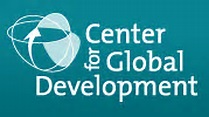 Efforts to curb money laundering and illicit terrorist financing have had unintended negative consequences internationally, in particular for people and organizations in poor countries via remittances, correspondent banking and humanitarian aid. More transparency, greater data and a stronger risk-based approach (RBA) are needed, according to a new report from The Center for Global Development, Unintended Consequences of Anti-Money Laundering Policies for Poor Countries.
Efforts to curb money laundering and illicit terrorist financing have had unintended negative consequences internationally, in particular for people and organizations in poor countries via remittances, correspondent banking and humanitarian aid. More transparency, greater data and a stronger risk-based approach (RBA) are needed, according to a new report from The Center for Global Development, Unintended Consequences of Anti-Money Laundering Policies for Poor Countries.
Anti-money laundering and combating of the financing of terror policies (AML/CFT) have created pressure for institutions to be uniformly risk-averse. As a result of mixed messages and imprecise guidelines from the Financial Action Task Force (FATF), along with a chilling effect from enforcement actions and fines on large financial institutions, banks are engaging in “derisking” by ceasing to engage in any activity with organizations or individuals that a seen to be higher risk. Read more
